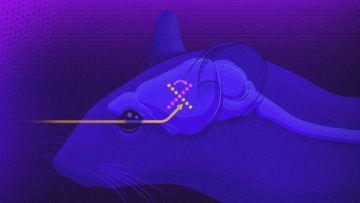Jordana Cepelewicz in Quanta:
 During every waking moment, we humans and other animals have to balance on the edge of our awareness of past and present. We must absorb new sensory information about the world around us while holding on to short-term memories of earlier observations or events. Our ability to make sense of our surroundings, to learn, to act and to think all depend on constant, nimble interactions between perception and memory.
During every waking moment, we humans and other animals have to balance on the edge of our awareness of past and present. We must absorb new sensory information about the world around us while holding on to short-term memories of earlier observations or events. Our ability to make sense of our surroundings, to learn, to act and to think all depend on constant, nimble interactions between perception and memory.
But to accomplish this, the brain has to keep the two distinct; otherwise, incoming data streams could interfere with representations of previous stimuli and cause us to overwrite or misinterpret important contextual information. Compounding that challenge, a body of research hints that the brain does not neatly partition short-term memory function exclusively into higher cognitive areas like the prefrontal cortex. Instead, the sensory regions and other lower cortical centers that detect and represent experiences may also encode and store memories of them. And yet those memories can’t be allowed to intrude on our perception of the present, or to be randomly rewritten by new experiences.
A paper published recently in Nature Neuroscience may finally explain how the brain’s protective buffer works.
More here.
